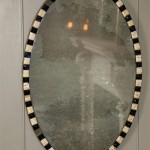How To Mirror Your iPhone onto a MacBook Pro
Mirroring an iPhone's screen onto a MacBook Pro offers several advantages, from presenting slideshows and demonstrations to enjoying mobile games on a larger display or troubleshooting device issues. This article outlines various methods to achieve this mirroring, catering to different needs and software versions.
Method 1: Using QuickTime Player (for macOS Mojave and earlier)
QuickTime Player provides a straightforward, wired solution for screen mirroring. This method requires a USB cable compatible with both the iPhone and MacBook Pro.
First, connect the iPhone to the MacBook Pro using the USB cable. Open QuickTime Player on the MacBook Pro. Then, from the menu bar, select "File" and then "New Movie Recording".
Next to the record button, a dropdown arrow will appear. Click this arrow to select the iPhone as the camera and microphone input source. The iPhone's screen will then be mirrored on the MacBook Pro's display.
Method 2: Using AirPlay to Mac (for macOS Monterey and later)
macOS Monterey and later versions offer AirPlay to Mac, enabling wireless screen mirroring. Ensure both the iPhone and MacBook Pro are connected to the same Wi-Fi network. This method eliminates the need for a wired connection, offering greater flexibility.
On the iPhone, open Control Center. If using an iPhone X or later, swipe down from the top right corner of the screen. For earlier iPhone models, swipe up from the bottom. Tap the "Screen Mirroring" icon.
A list of available AirPlay devices will appear. Select your MacBook Pro from the list. The iPhone's screen will then be mirrored wirelessly to the MacBook Pro.
Method 3: Using Third-party Applications
Several third-party applications provide screen mirroring functionality, often incorporating additional features. These applications can offer solutions for older macOS versions or enhanced mirroring options like recording or streaming.
Research reputable third-party screen mirroring applications available online or through the Mac App Store. Download and install the chosen application on the MacBook Pro. Follow the application's specific instructions for connecting and mirroring the iPhone.
Choosing a suitable application depends on specific requirements; some offer free trials, while others require a purchase.
Troubleshooting Common Mirroring Issues
Occasionally, users may encounter issues with screen mirroring. Here are some troubleshooting tips:
Ensure both devices are running the latest software versions. Outdated software can sometimes cause compatibility issues.
Confirm both the iPhone and MacBook Pro are connected to the same Wi-Fi network for AirPlay mirroring. A stable network connection is crucial for a smooth mirroring experience.
Check the USB cable if using a wired connection. A faulty cable can prevent successful mirroring. Try a different cable to rule out this possibility.
Restart both the iPhone and MacBook Pro. A simple restart can often resolve temporary software glitches affecting mirroring.
Optimizing Mirroring Performance
For a smoother mirroring experience, consider the following optimization tips:
Close unnecessary applications on both devices. Running multiple applications can consume system resources and impact mirroring performance.
Reduce the brightness on the iPhone. Lowering the screen brightness can improve performance, particularly with wireless mirroring.
If using wireless mirroring, ensure the Wi-Fi network is not congested. Other devices heavily using the network can impact mirroring quality.
Choosing the Right Mirroring Method
The optimal screen mirroring method depends on individual circumstances and available software. Wired mirroring through QuickTime offers stability and simplicity for older macOS versions. Wireless AirPlay provides greater flexibility for compatible systems. Third-party applications introduce advanced features and potential solutions for various configurations.
Consider the available software, desired features, and connection preferences when choosing the most suitable mirroring method.
Mirroring for Different Purposes
Screen mirroring serves various purposes, ranging from professional presentations to personal entertainment. Understanding the intended use can help determine the best approach.
For presentations, ensure a stable connection and practice the setup beforehand. For casual gaming or media consumption, wireless mirroring provides greater convenience. Troubleshooting device issues may benefit from a wired connection for a clearer display and more reliable connection.
Adapt the chosen mirroring method and setup to the specific task for the most efficient and effective experience.

How To Mirror Iphone Mac Without Wi Fi

2024 Updated How To Mirror Iphone Mac With 5 Methods

2024 Updated How To Mirror Iphone Mac With 5 Methods

How To Mirror Iphone Mac 8 Methods

5 Easy Steps To Mirror Iphone Mac Istreamer

Newest How To Mirror Iphone Mac Macbook Airdroid

How To Mirror Your Iphone Screen On A Computer Pcmag

How To Use Apple Airplay Mirror Your Iphone Mac Screen On Tv Roku And More Cnet

How To Mirror Iphone Windows Pc Laptop Mac Full Guide

How To Mirror Iphone Screen Mac Quick Easy Wireless 2024








